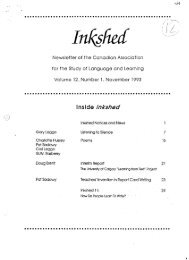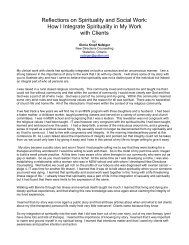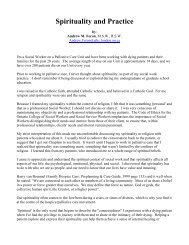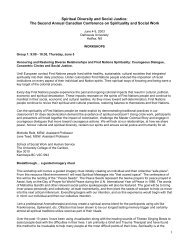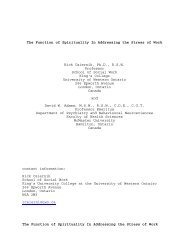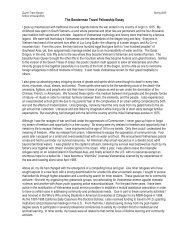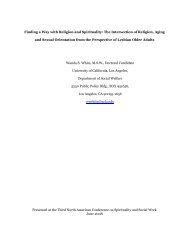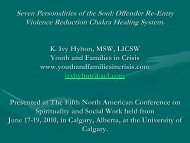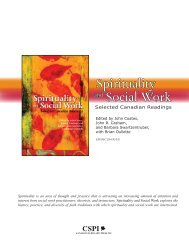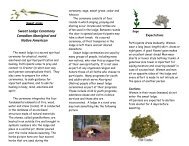The Wellness Wheel: An Aboriginal Contribution to Social Work
The Wellness Wheel: An Aboriginal Contribution to Social Work
The Wellness Wheel: An Aboriginal Contribution to Social Work
You also want an ePaper? Increase the reach of your titles
YUMPU automatically turns print PDFs into web optimized ePapers that Google loves.
« It is powerful for <strong>Aboriginal</strong> people <strong>to</strong> realize that one of their<br />
traditional approaches <strong>to</strong> health [the Medicine <strong>Wheel</strong>] is now viewed as<br />
progressive and crucial by health care educa<strong>to</strong>rs and policy planners<br />
within the United Nations and in Canada. […] <strong>The</strong> interplay of the<br />
physical, emotional, social and spiritual for achieving well-being has long<br />
been inherent in the aboriginal health paradigm and is now appearing as<br />
a stated value in health care teaching in Canada” (Royal Commission,<br />
1996, p. 5 on website)<br />
Moreover, the Medicine <strong>Wheel</strong> combines both the ‘emic’ (based on cultural<br />
particularities) and ‘etic’ (based on universally shared human characteristics) (Canda,<br />
1999; Massé, 1995) approaches <strong>to</strong> helping and is adaptable <strong>to</strong> a variety of cultures.<br />
Human cultures differ in a number of ways: in their value systems, worldviews, guiding<br />
principles, thinking and learning processes, cus<strong>to</strong>ms, practices and means for attaining<br />
goals. However, in their fundamental nature, human beings share many similarities with<br />
regard <strong>to</strong> the four components of the Medicine <strong>Wheel</strong>. <strong>The</strong>ir basic needs are the same;<br />
they feel similar emotions in similar situations; harmonious relationships, identity,<br />
recognition and a sense of belonging are individual aspirations in all cultures; human<br />
beings of all backgrounds have capacities for creative, rational, logical and intellectual<br />
functioning; all humans have choice of thoughts and attitudes when confronted with<br />
moral and ethical issues; desires for the spiritual qualities of love, justice, unity and peace<br />
and for general happiness are universal. According <strong>to</strong> Bopp et al (1984), all humans also<br />
have the capacity <strong>to</strong> grow and <strong>to</strong> change. Just as Canda (1999) and Massé (1995), who<br />
argue that both approaches, ‘emic’ and ‘etic’, in situations of cultural diversity, must be<br />
combined in<strong>to</strong> a “transemic approach” (Canda 1999:39) in addressing issues of health<br />
and wellness, so <strong>to</strong>o does the <strong>Aboriginal</strong> view of social work.<br />
10




